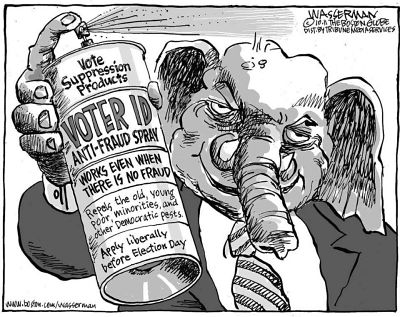
As reported in the The Rolling Stone, "George Zimmerman and Weaponized Racism: Bigotry alone didn't kill Trayvon Martin. 'It's the guns, stupid,' says one advocate," by Tim Dickinson, on 15 July 2013 -- In the aftermath of George Zimmerman's acquittal for slaying Trayvon Martin, America is engaged in another anguished conversation about race. It's an important conversation – but there's another subject we need to address to stop this from happening again, and this one is even more urgent. "Race is a part of everything that happens in America, but that misses the point," says Tom Diaz, a former senior analyst at the Violence Policy Center. "It's the guns, stupid."
Trayvon Martin is not dead because George Zimmerman is a fearful little bigot. He's dead because Zimmerman is a fearful little bigot who holstered a legal, loaded 9mm Kel-Tec PF-9 pistol in public. What, in any other civilized nation, might have been a fistfight between the two – eventually broken up by the cops – turned suddenly and legally deadly in a state that has become so firearm-friendly it's now known as the "Gunshine State."

America is not unique in its social ills. We are unique in weaponizing them. No matter how vigorous the conversation, America will not talk away racism, schizophrenia or socially maladroit young men. We can, however, choose as a society to curb weaponized racism. Weaponized insanity. Weaponized disaffection.
Instead, America is moving in the other direction, thanks to what Diaz dubs "bizarre mutations of the law" generated by the National Rifle Association. Just last week, Illinois fulfilled a decades-long crusade by the gun lobby, becoming the last of 50 states to authorize the concealed carrying of loaded guns in public. The move by the state legislature, overriding a veto by the governor, promises to fuel the epidemic of warlike gun violence in Chicago – where the city's homicide toll hit 200 this year after a bloody Fourth of July weekend in which more than 70 were shot and a dozen murdered.
Since the Newtown massacre, a few states, like Colorado, Connecticut, New York and Maryland, have stiffened their gun-control regimes. But far more states have liberalized gun rights: In Arkansas and North Dakota, it's now permissible to pack heat in church. In South Dakota, you can conceal-carry while driving a snowmobile. In Arkansas, college professors can holster a gun in the classroom. In Wyoming, judges can carry in the court.

And in Florida and 20 other states, "stand your ground" remains the law of the land – upending centuries of precedent on the concept of self-defense. As a result, fearful little armed bigots everywhere can shoot first, ask questions later, and have no fear of incarceration. They'll even get their weapons back. The "not guilty" Zimmerman will again be free to pack his trusty Kel-Tec everywhere he goes in Florida.
"We have to make a decision," says Diaz, author most recently of The Last Gun. "Is this the new normal? That people go about armed and shoot each other in the street? We seem to have fallen to a level that we're going to tolerate this kind of violence. And you have to ask yourself: What is this country going to look like 10 years from now?" (source: The Rolling Stone)











































